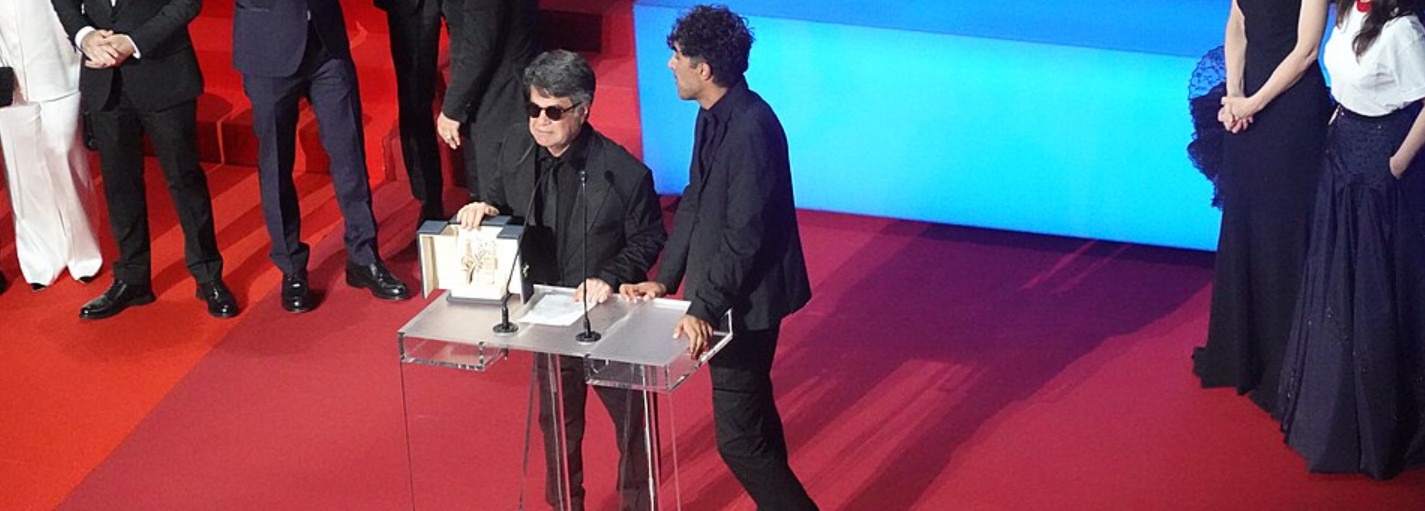‘It Was Just an Accident’: Cannes win and Jafar Panahi’s cinema of resistance
One of the biggest and certainly most acclaimed film festivals of the year, Cannes, was held from the 12 to the 23 May. At the conclusion of the 11-day festival, the jury awarded Iranian filmmaker Jafar Panahi’s film It Was Just an Accident the Palm d’Or (Golden Palm) – the highest prize awarded to the director of the best feature film of the year. Panahi has become the second Iranian national to win the French award. In a period of extreme emotional tumult for not only his nation but the world, it is telling that his work, with its naturalistic flairs and moments of irony, becomes the highlight of the festival when discussing the moral dilemma in the choice between revenge and redemption.
It Was Just an Accident, filmed without permission in Iran, follows a man named Eghbal (the character’s name being the Farsi word for peg-leg) as he breaks his car after accidentally hitting and killing a dog. After going to the mechanic, he is recognised by a former political prisoner named Vahid who recognises the squeak in his false leg for the intelligence officer who had tortured him to the point of permanent kidney damage. Set on revenge, Vahid follows Eghbal home, kidnaps him and prepares to bury him alive, but then is hit by waves of doubt as the guard had never revealed his face. For the next hour and 45 minutes Vahid’s van slowly fills with fellow ex-prisoners and victims who all seek revenge on the man who brutally abused them. During their ride, the characters consistently come back to the morality of killing their captive and question his identity as the man whom they believe him to be.
In this dark fable laced with humour the spirit of the Iranian people is constantly being evoked
In the context of a collapsing wider political landscape, Panahi’s film becomes an introspective depiction of the lives of individuals in an oppressive and authoritarian regime. It is based on the director’s own experience being arrested in the Islamic republic of Iran – Panahi was first arrested in 2009 after attending a funeral of a student killed during protests of the Green Movement, and subsequently was placed on house arrest. This has, however, only propelled his filmmaking into a continual and renewed act of resistance. In this dark fable laced with humour the spirit of the Iranian people is constantly being evoked; having been an apprentice of Abbas Kiarostami, who also won the award in 1997, Panahi is the second Iranian national to win the French competition. Their combined accolades in the film genre have changed Iranian cinema irrevocably for the better. As censorship and strict guidelines run rife in domestic productions, It Was Just an Accident commits to a realistic portrayal of the inherited trauma Persian people are endlessly familiar with.
Panahi has described his release from Iran’s Evin prison after nearly seven months behind bars. In adjusting to civilian life again, he remains steadfast in painting a humane and heartfelt portrait of life in Iran, one to counter the harmful caricatures fabricated by Western media outlets. After being presented with the award, thanking his family and collaborators, he addressed the Iranian community to put all problems aside and think of only their shared country and its freedom.
It is that genuine love and commitment to his country that bleeds through every aspect of his work. In 2021 his son Panah, on the making of his own film, admitted that the political stance of his father has put undue strain on his family – but in his own resolved manner his love for Iran is at the heart of his work. The prospect of being allowed to travel outside the country once again, however, leaves him unmoved. In an interview with The Guardian, he describes how this success pales in comparison to the reality of his people – ultimately the reason why he continues to make his films on his pending arrival at the Cannes Festival he admitted:
“Maybe I’ll feel as I did when I was released from prison. I knew that my friends and family were waiting for me outside. But when I stepped out I had very mixed feelings. I stood in the road and looked back at the wall. Maybe in Cannes I’ll feel the same way. I’ll look back and think about the people left behind in my country.”
Which is why, personally, I believe the production was awarded the highest prize. In its appraisal of melancholy, Panahi’s film depicts Iranians with the humour he knows they have mastered and a humanity that is essential to their community, in the face of a reality that has attempted to unsuccessfully dampen that spirit since 1979.

Comments